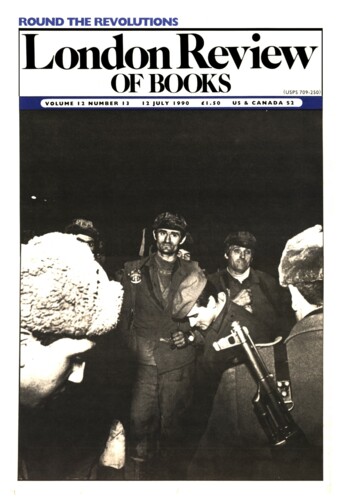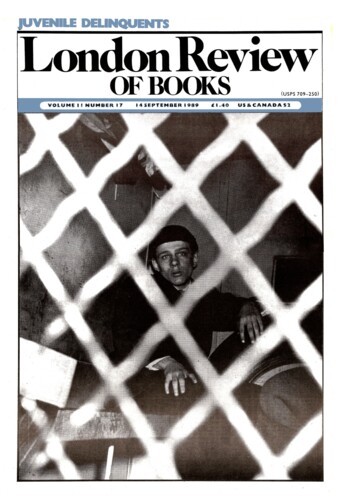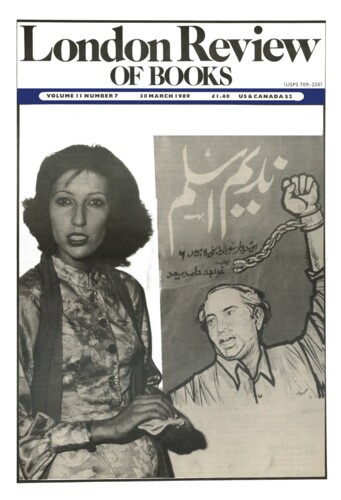Burnished and braced
Alethea Hayter, 12 July 1990
‘Relaxation is my bane, Lady Morpeth. All my habits and tastes lean that way and in consequence I am going to wage war upon them all. I dread a languid yellow old age, hot, perfumed and dawdling, and I prefer our Julia’s course, active, smart, burnished and braced.’ This selection of letters to an adored sister concentrates on the ‘active, smart, burnished and braced’ aspect of an ambivalent personality and pattern of life. It presents Harriet Cavendish (or Hah-yet Candish as it was then pronounced) only as a wife. For her upbringing among the splendours of the Devonshire ménage, and for her widowhood, Betty Askwith’s Piety and Wit is needed as a complement to this sparkling collection of letters, which is confined to Lady Granville’s brilliant social life as Ambassadress in Paris and as guest in the greatest English country houses.



